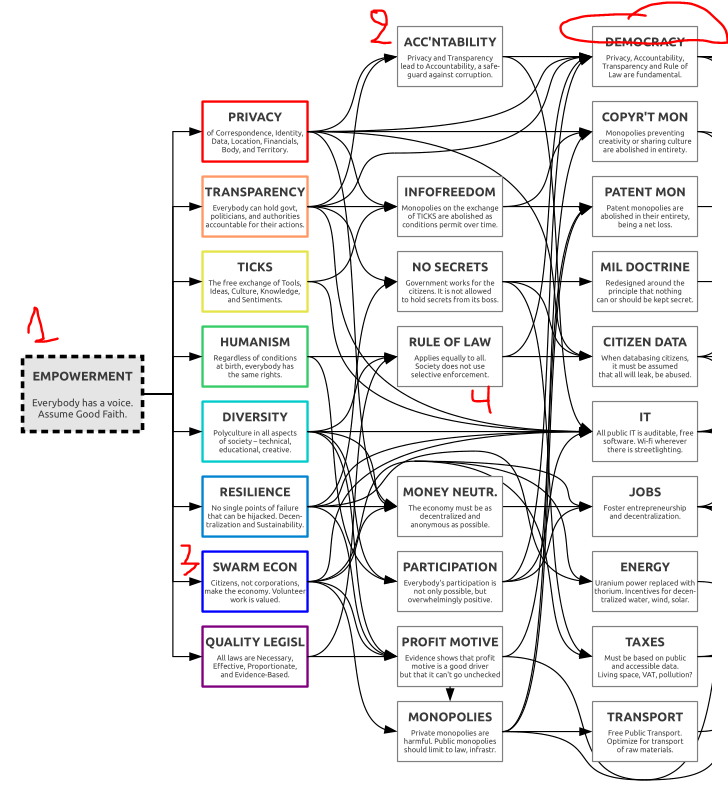Από το ίδιο άρθρο
First of all, democracies need citizens. Citizens are not only people who engage in public life, though they are also that. Above all, citizens accept that their loyalty to the processes they share must override loyalty to their own political side. Citizens understand the idea of a “loyal opposition”. They accept the legitimacy of government run by and even for their opponents, confident that they may have their own turn in time. Citizens, it follows, do not use the political process to destroy the ability of their opponents to operate in peace.
Second, democracies need guardians, a term used by the late Jane Jacobs in her superb book, Systems of Survival. Guardians hold positions of political, bureaucratic, legal or military power. What makes them guardians, as opposed to bandits, is that they use their positions not for personal material advantage, but in accordance with objective rules or in favour of a notion of the commonweal.
Third, democracies need markets. By markets we definitely do not mean the abuse of the power of state to turn public into private wealth, as happened throughout so much of the former Soviet Union. Business people who build their fortunes on such theft are no more legitimate than the politicians who helped them.
Properly functioning markets supported by a well-functioning state provide crucial underpinnings of stable democracy. First, they support prosperity. A society able to ensure a decent and reasonably secure standard of living is also likely to be a stable one. This then would be a society of trust in one’s fellow citizens and one’s economic future. Second, markets loosen the connection between prosperity and power. They make it possible for people to regard the outcomes of elections as important, but not as matters of life or death either for themselves or for their families. This lowers the temperature of politics from the burning to the bearable.
Finally, if all these complex, albeit essential, systems are to be effective, democracies need accepted laws, including not least constitutional ones (even if sometimes unwritten). The law, enacted and implemented in accordance with accepted procedures, shapes the rules of the political, social and economic game. A country that lacks the rule of law is permanently on the verge of chaos or tyranny
Καλέ και ο Αρχι-Πειρατής τα ίδια λέει... και πιο καλά




- 4.PNG (147.54 KiB) 2896 προβολές
Υ.Γ.
Με χιούμορ, με χιούμορ και καμία διάθεση αντιπαράθεσης η απάντηση.

Το
Path to Democracy μου άρεσε ως τίτλος γιατί όντως μου θυμίζει το
σχήμα :P
1. Προστασία της ιδιωτικής ζωής .
2. Μεταρρύθμιση της νομοθεσίας για το copyright.
3. Αλλαγές στην Ευρωπαϊκή νομοθεσία για τις πατέντες.
+1. Διαφάνεια της Δημόσιας Διοίκησης.